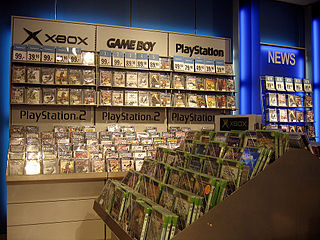Christians And The Gaming World
 I blame my husband. I played video games, but they mainly consisted of Mario and Tetris. It wasn’t until we moved to Dallas, Texas, and my husband Dan began attending Dallas Theological Seminary that I first had my taste of the gaming world.
I blame my husband. I played video games, but they mainly consisted of Mario and Tetris. It wasn’t until we moved to Dallas, Texas, and my husband Dan began attending Dallas Theological Seminary that I first had my taste of the gaming world.
One day, as he was taking a break from homework, I looked over his shoulder to find him playing Age of Mythology, an RTS (Real Time Strategy) computer game. I was intrigued. I started asking him questions. We traded spots, and he started showing me what each unit was and what the main goal was in the game. A couple days later, we linked our computers and became a gaming couple.
At first we started with RTS games. I would gather supplies and he would lead our armies. Then we worked up to some light shooter games like Star Wars Battleground. I usually would play the role of sniper and would cover Dan as he would run into hostile situations.
 Eventually we made our way to MMORPGs (Massively multiplayer online role-playing games) and single player games on consoles like the Wii and Xbox. But our favorite games are those we can play together.
Eventually we made our way to MMORPGs (Massively multiplayer online role-playing games) and single player games on consoles like the Wii and Xbox. But our favorite games are those we can play together.
Early on in my gaming, I came to realize there needed to be boundaries in what I played. You can do almost anything in the gaming world (maybe everything). And a lot of it is stuff that has no place in my life. That conviction was reinforced when I read an article written by a Christian gamer. The main point he made in the article was never do anything in a game you would not do in real life.
Those are words I live by now in my own gaming. For example, one of my favorite games is the Elder Scrolls series (Oblivion and Skyrim are two of the titles). In those games, you can join the Thieves Guild and the Assassins Guild. Because of my convictions, I chose not to join either guild and therefore did not play those particular parts of the game. Why? I would not steal in real life, therefore I will not steal in a game. I would not choose to murder someone in real life, so I won’t in a game.
Now you might be pointing out that most games consist of killing. Yes and no. It depends on the role you are playing in the game. Are you a soldier? In a war? Well, in that case, there will be some death involved. But I never will be an assassin, killing innocents for money.
I have also made the choice not to play overly gory games. I don’t need to see that kind of stuff on the screen. I’m thankful that there are now options in the settings to remove the gore out of most games.
Another area I place boundaries around is the romantic storyline in a game. I choose not to follow amorous relationships to the bedroom (yes, you can now do that in games and watch the cut scenes). No thank you.
So with all the potential pitfalls and dark elements in the gaming world, why do I still play? After all, wouldn’t it be safer to just not play at all? Sure it would. And I know a lot of Christians who choose not to play video games. But for me, I like playing video games because I like adventure, I like the unique stories, and I like being the hero (or in my case, heroine ;)). It is also something my husband and I can do together and enjoy. And I like meeting other people.
The gaming world is a place full of real people with spouses and kids. It is also filled with people who have lost their jobs, struggling with suicide and looking for hope. In a time and age where front porches have disappeared and meeting people outside our own small circles becomes harder, games have become the new meeting place.
I have met people from all over the world and in every walk of life. I have been able to share my faith, encourage those going through hard times, and make new friends. I have been a part of both Christian guilds and regular guilds. The people on the screen are just as real as the ones you meet on the street.
But aren’t there dangerous people in the virtual world? Yes, there are stalkers and weirdoes and unsavory characters. Navigating through the gaming world requires good judgment and using your common sense. But as one person once pointed out to me, the gaming world is probably one of the least reached spheres of people. It is a dark place in need of light. Trust me, when you play with kindness and integrity, you tend to stand out, much like a candle does in a dark room. This uniqueness leads to opportunities to share the why behind your play style.
Christians and the gaming world do not need to be at odds with each other. Games can be a place to recharge the imagination, come together as a couple or a family, and meet people beyond your physical sphere of influence. And they can be fun too!
– – – – –
 Morgan L. Busse is passionate about authentic Christianity and shares from her own life her fears and triumphs as a follower of Jesus Christ. The wife of a pastor and a mother to four children, she has plenty of adventures to draw from.
Morgan L. Busse is passionate about authentic Christianity and shares from her own life her fears and triumphs as a follower of Jesus Christ. The wife of a pastor and a mother to four children, she has plenty of adventures to draw from.
Morgan blogs at In Darkness There Is Light. She also writes speculative fiction and this month released her debut book, Daughter of Light (described below) with Marcher Lord Press.
As the Shadonae rise in the west and war threatens the north, a young woman discovers she is not human . . .
Rowen Mar finds a strange mark on her hand, and she is banished from her village as a witch. She covers the mark with a leather glove and seeks sanctuary in the White City. She lives in fear that if she touches another person, the power inside her will trigger again, a terrifying power that allows her to see the darkness inside the human heart . . .
But the mark is a summons, and those called cannot hide forever. For the salvation of her people lies within her hand.









































I am very glad to see this. I’m not actually a real gamer — I’m more of a wannabe — but I love all kinds of digital games and gaming communities. I’m particularly interested in how interactivity relates to narrative, how games can be used to tell stories in more personal and satisfying ways. I’m a great fan of a type of indie game called interactive fiction, where the whole game is described in text like a novel, and the player types what the protagonist/player character is supposed to do with imperative sentences.
I have not followed any such rule, but there have been times when I have quit playing an adventure game because the content disturbed me, and forcing the player to command the player character to do things that the player would not do in real life can greatly increase the sense of being disturbed. Your rule may be a very good one for many kinds of gaming situations. However, I don’t think it fits for those rare RPGs where the player is supposed to act in-character as a wholly imaginary person or for adventure games driven by an unalterable plotline. Or maybe it fits there, too, I don’t know.
I just don’t think the human player can be held more responsible for the fictional actions of the player character in the game world than a writer can be held responsible for the fictional actions of the characters in the novel. That is to say, the writer is responsible for the actions of his or her characters and can do great harm through them, but there is still reason to write evil characters. As gamers, I think there may sometimes be valid reasons to play bad guys.
I think we can play bad-guys with kindness and integrity too. For instance, in the MMORPG Battlestar Galactica Online, I’m a Cylon, and I try to kill the humans (Colonials). The game is set up almost completely around Player-versus-Player conflict. When I made my first player kill, I couldn’t take on any of the big ships that tend to duke it out in the middle of the game-map. So, I evaded enemies and flew to a part of the map where low-level Colonials hang out. A Colonial player, who was 1 level above my own level, was fighting a low-level NPC and didn’t notice me. I waited until the player defeated the NPC, and then I said (or rather, I caused my Cylon PC, Grimbas, to say) “Dance with me, human!” and I attacked. It was a really close dogfight, but I barely managed to defeat that other player. I was the evil Cylon enemy, but I hope that by adding a touch of in-character drama, I was able to bring the real person behind the Colonial character a genuine moment of surprise and fun.
Great point Bainespal! There is a difference (I think) between the role you choose to play and the choices you make as a player that evolve who you are as a character. In the original Knights of the Old Republic games (not the new MMORPG), the choices you made lead you either towards the light side or the dark side. I never went to the dark side. Why? Some of the things you had to do disturbed me (good choice of word Bainespal). So I never explored that side of the game.
However, when the Death Knight hero class came out in World of Warcraft, I created one of those characters. At the beginning, you are corrupt and evil. That is part of the storyline. But as you go through the story, your character begins to realize what has happened and at the end of the beginning storyline, you choose to fight against the Lich King and join the forces of good.
I think it comes down to what is the end result of the choices you make. Do you become an evil dictator who takes pleasure in torturing and killing innocent people? Well, I would have a problem with that so I wouldn’t choose that storyline.
Also, there are always two sides to a battle, and as in real life, there are good and bad people on both sides. You said you played the Cylons. I like to play the Horde in World of Warcraft. Both are considered the “enemy”. But the Cylons (if I am remembering my Battlestar Galatica lore correctly), basically want what humans want: a purpose to live. That’s not bad. But sometimes it puts them at odds with humans.
Very good points. I played World of Mythology and Civilization III, and I currently love to play those Facebook games my creaky old computer can handle, and have made online-friends from around the world that way.
I once started playing the Facebook game Dexter— based on a novel and TV series I love, about a serial killer who only kills other killers. But one of the tasks in the game was to prepare a ‘kill room’ for Dexter. I love you, Dexter, but I’m not going to prepare a ‘kill room’ for you and become your accomplice. Sorry.
You have no idea how happy this made me– first today is Homestuck day, and now a well thought out article on something I’ve thought about myself! 😀
I’m with you, especially when it comes to games like Skyrim (and mostly Fallout 3/New Vegas). I play according to my convictions. It’s weird to think about, but I just couldn’t bring myself to do bad things in games like that. I think in some ways, games are practice. Like, I can practice in a safe environment, with fictional choices, what I would do in a real situation– today, I’m choosing whether or not to help this kid who can give me nothing to clear out mutated ants, tomorrow I have to choose between myself and a friend who desperately needs a favor.
I think good games, the ones with great stories, are a lot like books. Final Fantasy VII and XIII, Fallout 3, and even to some extent the story of Age of Mythology are all surprisingly moving and meaningful. As Istart to run low on books to read, I’ll go back to RPGs like Fallout or anything made in Japan and they help fill the void in me that wants Story.
I think a lot of people use games for what I use books for, to fill that need for story. FF7 was really influential in my imaginative life as an impressionable kid. What a medium that Christians just haven’t touched!
I think the interactivity and player agency in games has great potential to reach even deeper than non-interactive stories can, making the narrative experience all the more moving and meaningful. I wonder if the most ancient forms of story telling were a little like games today; you had the experience of sitting at the feet of the mystical Story Teller, hanging on every spoken or sung word.
I think this demonstrates all the more that fiction fulfills one of the greatest functions of fantasy (or perhaps Story itself, more generically) — showing our mundane lives to be significant by casting them in extraordinary settings. Interactivity allows us to be personally invested in the consequences of the player character’s actions.
The greatest thing about games is that they go beyond using our digital devices as a delivery method; the whole format of the narrative takes advantage of our increasingly-ubiquitous digital technology. Interactive games deserve to be considered a new meta-genre of literature, alongside novels, theater, movies, and poetry.
Okay, I’ll get off my soapbox now. 😉
And then there’s sandbox games like Minecraft that take courtesy to a whole new level. 🙂
If you’re on a co-op map, you don’t tear up other people’s stuff they’ve built. You don’t screw up the terrain and you don’t steal resources. It’s amazing how inconsiderate people can be online.
Good article. It made me think about my own game interactions with people online, like in World of Warcraft. I always tried to be nice and helpful, but it’s gotten to where I prefer to only group up with people from my guild. You never know what weirdo is going to try to ninja the boss loot. The most fun I ever had in a game was when my entire extended family had a raiding guild, and we’d run dungeons twice a week.
That sounds like nothing but pure, epic, transcendent awesomeness! I’m excited just by the very thought. I wish my family were like that!
I only play one computer game–Doctor Who MMORPG “Worlds in Time..” Because of the main character’s nonviolent nature, it tends more to a puzzle-solving game–even “fights” just knock the enemies out. There’s a PC game coming out soon, and I think that one has the Doctor role as nonviolent, but River does do some shooting…
[…] originally posted this article at speculativefaith.com. Share this:StumbleUponFacebookLike this:LikeBe the first to like this […]